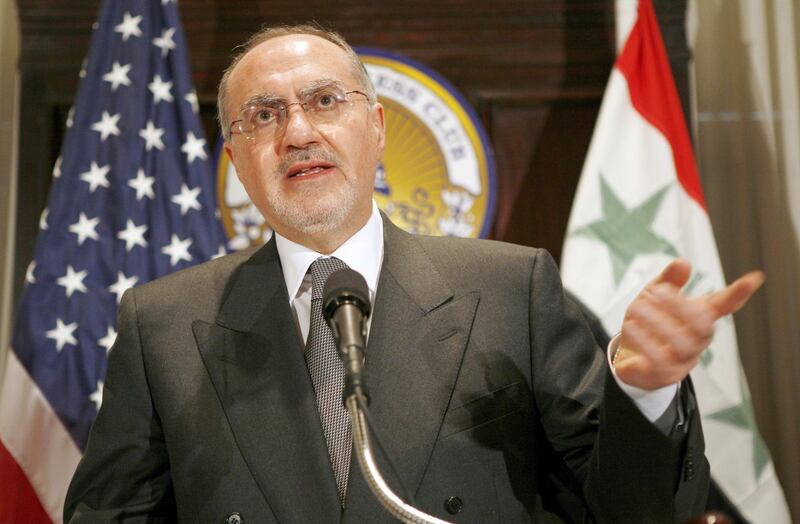US president-elect Joe Biden’s administration will not abandon Donald Trump’s policies in Iraq, but will attempt to de-escalate tensions in the region, Iraq’s Deputy Prime Minister Ali Allawi said on Monday.
Mr Biden’s win raised alarm bells for some Iraqi politicians who fear that it may translate into greater influence for Iran and its proxy groups in the country.
But the Iraqi official suggested that Mr Biden’s administration will not abandon Mr Trump’s approach towards Iran.
"There might be some kind of hybrid policy driven by new realities on the ground,” Mr Allawi said during a Chatham House web seminar on Iraq.
Pressure on Baghdad will ease, he said.
There have also been fears that Mr Biden would push through the idea of dividing Iraq among partisan lines, but Mr Allawi brushed aside those concerns and said that the “plan for partition is gone. Iraq is now less sectarian and is ruled by raw power politics”.
"It [the US] will certainly advocate for Arab countries to open diplomatic relations," he said.
Washington has nearly 3,000 troops in Iraq to help the country's forces fight the remnants of ISIS. The number is expected to downscale to 2,500 by January.
US Secretary of State Mike Pompeo has threatened to close the US embassy in Baghdad over a number of rocket attacks by Iranian-backed militias, but there has been no official announcement about its status.
Mr Allawi said US presence in Iraq is “more for appearance” and is symbolic, but if the attacks continue then it may have to be re-evaluated.
The remaining US military personnel do not engage in combat operations, but serve to train and advise Iraqi forces to combat the remaining ISIS sleeper cells. The same policy is expected to continue under the Biden administration, the Pentagon has said.
“The US presidency has been in the past a force of stability [for Iraq] but has drawn down in the last few years. It's still important for security,” Mr Allawi said.
Describing the issues facing Iraq today as "an existential economic crisis", Mr Allawi, who is also the finance minister, said there were no quick solutions.
Last month the Iraqi cabinet approved a white paper for economic reform to be carried out over the next three to five years, including a centralised IT system.
The need for change is dire in Iraq, as the government tries to rebuild following years of war and rampant corruption.
It is also struggling to revive its stagnating oil industry due to the outbreak of the coronavirus pandemic.
Iraq is ranked 162 out of 180 countries in Transparency International Corruption Perceptions index.







